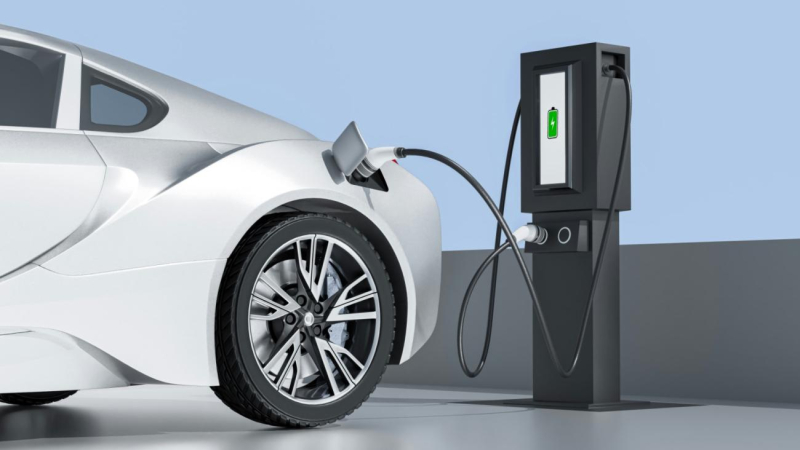
Unsplash
On Friday, European Union (EU) member states will have to decide whether to impose tariffs of up to 45% on imports of electric vehicles made in China. France, Greece, Italy and Poland have already expressed their intention to vote in favour of this text, making its adoption more than likely. For its part, Germany, which had already spoken out against this increase in tariffs and abstained during a vote in July, has still not decided whether it would support the Commission in its approach or not, according to statements by its Chancellor, Olaf Scholz, in the presence of President Emmanuel Macron, in Berlin.
Trade relations between the EU and China, already very tense for many months, could undoubtedly worsen this Friday, October 4. Member States will have to decide on customs tariffs of up to 45% on electric vehicles manufactured and imported from China. France, Greece, Italy and Poland have already confirmed their decision to vote in favour of the surcharge.
Enough votes in favour of tariffs, Berlin still hesitant
On a visit to Germany, French President Emmanuel Macron said he supported the tariffs, saying the level of Chinese subsidies was “unbearable”. “In general, we must protect the equality of conditions of competition in all the different sectors of our industry,” he justified.
To apply these definitive tariffs for the next five years, it is necessary that the qualified majority of 15 countries, representing 65% of the European population, not be against this vote. But these four countries, decided to vote “Yes”, already represent nearly 40% of the EU population.
If the vote of Spain, initially in favor of customs tariffs and then reluctant after a visit in September by its Prime Minister Pedro Sanchez to China, is uncertain, it is Berlin’s position that is being scrutinized. Its economic and commercial relationship with Beijing is close and Germany fears repercussions on its automobile industry, since China is a more than active player in this market.
Yesterday, German Chancellor Olaf Scholz also said that negotiations with China should continue. His country could again abstain from voting because of differences of opinion within its tripartite government. “A negotiated solution would certainly be preferable to imposing customs tariffs, however calibrated they may be,” one of his advisers told Bloomberg.
The EC says it is ready to “continue to negotiate an alternative,” with a price review as the key or, above all, a commitment from Beijing to invest on European soil to manufacture its electric vehicles.
Beijing denounces “protectionist behavior”
As a reminder, the European Union decided in early July 2024 to impose temporary taxes on electric cars imported from China. These temporary taxes could reach up to 38% and were put in place pending a final decision on definitive customs duties.
This measure followed an investigation launched in October 2023 and conducted by the European Commission (EC) to determine whether Chinese manufacturers benefit from government subsidies that could constitute unfair competition for European manufacturers. The survey showed that sales of battery electric vehicles (BEVs) manufactured in China had exploded in three years, rising from 57,000 in 2020 to more than 437,000 in 2023. Until last June, Chinese brands represented 11% of the electric fleet in Europe.
European manufacturers are then overwhelmed by their production costs, much higher than those observed in China. Three Chinese companies are in the crosshairs: SAIC, Volkswagen's partner in China and whose MG4 is the best-selling vehicle in Europe, BYD and Geely. The three manufacturers are already affected, respectively, by a surcharge of 36.3%, 17% and 19.3%. The other manufacturers were subject to an additional average tax of 21% for those most cooperative in the investigation, 37.6% for the most recalcitrant.
China immediately expressed its displeasure by referring the matter to the WTO, stressing that these taxes could harm trade relations between the EU and China. Beijing denounced “purely protectionist behaviour”, warning of the possible repercussions of such a measure, and stressing its firm intention to “take all measures to firmly defend its legitimate rights”. China had also announced an anti-dumping investigation into imports of European pork, following the one already opened on EU wine spirits; like cognac.
In August, the EC confirmed its intention to impose customs duties of up to 36% for a period of five years. This is the decision that must be approved by the 27 tomorrow. In reciprocity, Beijing announced its response with an investigation targeting supposed subsidies granted by the 27 to dairy products. What Chinese reaction can we expect from Friday ?
You liked the article ? It mobilized our editorial staff, which lives only on your donations.
Information has a cost, especially since competition from subsidized editorial staff requires greater rigor and professionalism.
With your support, France-Soir will continue to offer its articles for free because we believe that everyone should have access to free and independent information to form their own opinion.
You are the sine qua non condition for our existence, support us so that France-Soir remains the French media which allows the most legitimate voices to be expressed.

